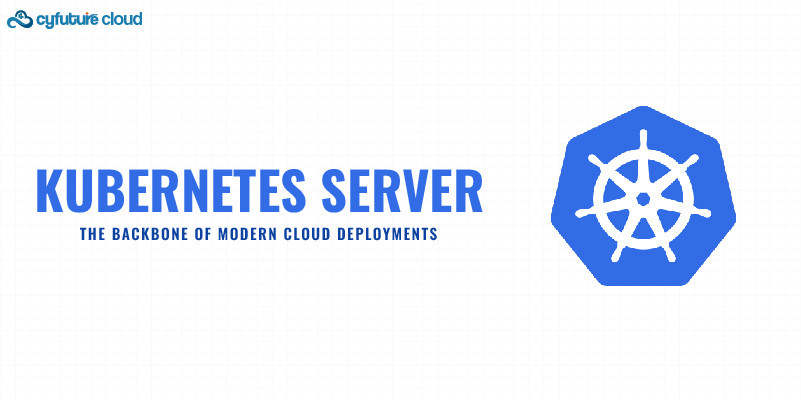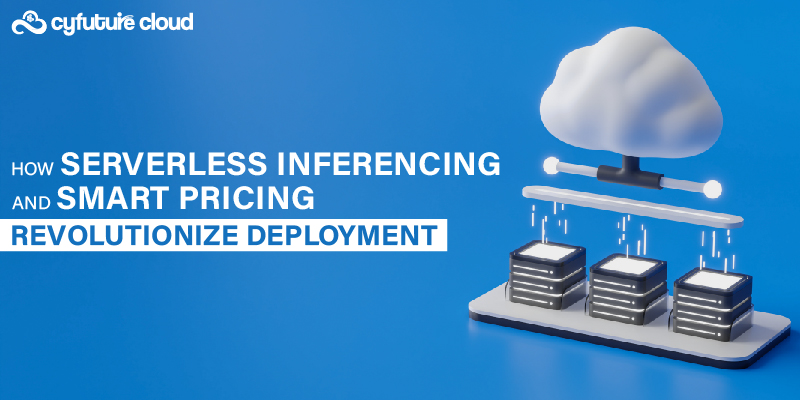Table of Contents
Over commitment in a private cloud refers to the practice of allocating more resources than are physically available on the underlying infrastructure. This can occur when a cloud provider oversells their capacity, or when an organization overestimates the resources they need and provisions more than they can actually use. Over commitment can lead to resource contention, performance degradation, increased downtime, decreased reliability, and higher costs.
According to a survey by the Cloud Industry Forum, over 50% of organizations have experienced negative consequences as a result of Over commitment in a private cloud environment. To avoid these negative consequences and ensure the stability and efficiency of their private clouds, organizations must carefully monitor and manage their resource usage.
Check out the blog to get more insights!
What is a Private Cloud?
A private cloud is a type of cloud computing that is delivered over a private network or through a data center that is dedicated to a single organization. This is in contrast to a public cloud, which is available to the general public and is shared among multiple organizations. Private clouds offer greater security and control, as the infrastructure is owned and managed by the organization and is not shared with any other parties. They also allow organizations to customize the hardware and software to meet their specific needs. Private clouds can be implemented on-premises, in a data center owned and operated by the organization, or they can be provided by a third-party service provider as a managed service.
Benefits of Private Cloud
Private clouds offer a number of benefits to organizations, including increased security and control, improved performance, cost savings, compliance, scalability, and flexibility. The same is explained below:
– Increased security: Because the infrastructure is dedicated to a single organization and is not shared with other parties, private clouds offer a higher level of security.
– Greater control: Organizations have complete control over their private cloud infrastructure, including the ability to customize hardware and software to meet their specific needs.
– Improved performance: Because the resources of a private cloud are dedicated to a single organization, performance can be optimized for that organization’s specific workloads.
– Cost savings: Private clouds can be more cost-effective in the long run, particularly for organizations with large, predictable workloads.
– Compliance: Private clouds can help organizations meet regulatory and compliance requirements, as they have complete control over the infrastructure and can implement security measures to meet these requirements.
– Scalability: Private clouds can be easily scaled up or down to meet changing needs.
– Flexibility: Private clouds allow organizations to choose the deployment model that best meets their needs, whether that be on-premises, in a third-party data center, or as a managed service.
What is Over commitment?
Over commitment refers to the practice of selling more resources, such as computing power or storage capacity, than a service provider actually has available. In the context of cloud computing, a service provider might overcommit resources in order to increase their profitability by packing as many customers as possible onto their existing infrastructure. However, this can lead to performance issues for customers if the demand for resources exceeds the available supply. To mitigate these issues, service providers may use techniques such as oversubscription, where they allocate more resources to customers than they have available, with the expectation that not all customers will use all of their allocated resources at the same time. It’s important for organizations to be aware of the risk of Over commitment when choosing a cloud service provider, and to carefully evaluate their needs and the provider’s ability to meet those needs before committing to a service.
Definition of Over commitment in Private Cloud
In the context of private clouds, Over commitment refers to the practice of selling or allocating more resources, such as computing power or storage capacity, than an organization actually has available within its private cloud infrastructure. This can happen if an organization is not careful in planning and provisioning its private cloud resources, or if it experiences unexpected spikes in resource demand.
Over commitment can lead to performance issues for users of the private cloud if the demand for resources exceeds the available supply. To avoid Over commitment, it is important for organizations to carefully plan and provision their private cloud resources and to monitor resource usage to ensure that they have sufficient capacity to meet their needs. If an organization is unable to meet its resource needs from its private cloud, it may need to consider scaling up its infrastructure or looking to a public cloud or other external resources to meet its needs.
Examples of Over commitment in Private Cloud
Over commitment in a private cloud refers to the practice of allocating more resources than are physically available on the underlying infrastructure. This can occur when a cloud provider oversells their capacity, or when an organization overestimates the resources they need and provision more than they can actually use.
Some examples of over commitment in a private cloud might include:
- Allocating more virtual CPUs or RAM than the physical hardware can support.
- Providing more storage space to users than the underlying storage infrastructure can accommodate.
- Allowing users to create more virtual machines than the underlying physical servers can support.
- Allocating more network bandwidth than the physical network can handle.
Over commitment can lead to resource contention and degraded performance for users, and it can also increase the risk of outages or other disruptions. To avoid over commitment, it is important for organizations to carefully monitor their resource usage and ensure that they are not exceeding the capacity of their private cloud infrastructure.
Consequences of Over commitment
Over commitment in a private cloud can have serious consequences for both the provider and the users of the cloud. When a cloud provider overcommits their resources, they run the risk of not being able to meet the demands of their users, which can lead to dissatisfaction and loss of customers. Users may experience degraded performance or even outages if the provider is unable to allocate sufficient resources to meet their needs.
For organizations using a private cloud, over commitment can also have negative consequences. If an organization overestimates their resource needs and provisions more resources than they can actually use, they may waste money on unnecessary infrastructure. Additionally, over commitment can lead to resource contention and poor performance, which can impact the organization’s ability to run applications and services effectively.
To avoid the negative consequences of over commitment, it is important for both cloud providers and users to carefully monitor and manage their resource usage, and to ensure that they are not exceeding the capacity of their infrastructure.
Performance Degradation
Over commitment can lead to resource contention, where multiple users or applications are competing for the same limited resources. This can result in slower performance & reduced capacity for all users, as the infrastructure is unable to meet the demands placed on it.
Increased Downtime
If a private cloud becomes overcommitted, it may be unable to meet the demands of its users, which can lead to outages or other disruptions. This can result in increased downtime for applications and services, which can impact the organization’s ability to do business.
Decreased Reliability
Over commitment can also lead to decreased reliability, as the infrastructure may be unable to handle the workloads placed on it. This can result in more frequent failures or other issues, which can impact the organization’s ability to depend on the cloud for mission-critical workloads.
Higher Costs
If an organization overcommits its resources and ends up paying for more infrastructure than it can use, it may waste money on unnecessary expenses. Additionally, if the infrastructure becomes overcommitted and unable to meet the demands of its users, the organization may need to invest in additional resources to address the issue, which can also increase costs.
How to avoid Over commitment?
To avoid over commitment in a private cloud, it is important for organizations to carefully monitor and manage their resource usage. Regularly monitoring resource usage can help organizations identify when they are approaching capacity limits, and take action to avoid over commitment. Properly sizing resources based on actual usage patterns can also help organizations avoid allocating more resources than they need. Additionally, using resource management tools such as resource quotas, resource pools, and resource reservations can help organizations better manage their resources and prevent over commitment. Planning for future growth and using a pay-as-you-go model can also help organizations avoid overcommitting their resources. By following these best practices, organizations can effectively manage their resources and avoid over commitment in their private clouds.
Proper Resource Planning and Forecasting
Proper resource planning and forecasting can help organizations anticipate their future resource needs and avoid Over commitment by provisioning sufficient resources in advance. This can involve using tools to analyze usage patterns and forecast future demand, as well as regularly reviewing and adjusting resource allocations as needed.
Use of Tools for Monitoring and Alerting
Using tools for monitoring and alerting can help organizations identify when they are approaching capacity limits, and take action to avoid Over commitment. These tools can provide real-time alerts when resource utilization reaches certain thresholds, allowing organizations to take corrective action before Over commitment occurs.
Setting Limits on Resource Allocation
Setting limits on resource allocation can help organizations avoid Over commitment by preventing users from allocating more resources than the infrastructure can support. This can involve setting quotas or other limits on resource usage, and enforcing these limits through resource management tools.
Use of Resource Management Strategies
Resource management strategies such as consolidation, load balancing, and resource reservation can help organizations more effectively utilize their resources and avoid Over commitment. Consolidation involves combining multiple workloads onto fewer servers, which can increase utilization and reduce the risk of Over commitment. Load balancing involves distributing workloads across multiple servers to evenly distribute resource usage and prevent any one server from becoming overloaded. Resource reservation involves setting aside resources for specific users or workloads, which can help ensure that necessary resources are available when needed.
Conclusion
Over commitment can have serious consequences in a private cloud environment. It can lead to resource contention, performance degradation, increased downtime, decreased reliability, and higher costs. Proper resource management is crucial to avoid over commitment and ensure the stability and efficiency of a private cloud. To avoid over commitment, organizations should monitor and manage their resource usage, properly size their resources, use resource management tools, plan for growth, and consider using a pay-as-you-go model. By following these best practices, organizations can effectively manage their resources and avoid over commitment in their private clouds.
Recent Post
Send this to a friend

 Server Colocation
Server Colocation CDN Network
CDN Network Linux Cloud Hosting
Linux Cloud Hosting Kubernetes
Kubernetes Pricing Calculator
Pricing Calculator
 Power
Power
 Utilities
Utilities VMware Private Cloud
VMware Private Cloud VMware on AWS
VMware on AWS VMware on Azure
VMware on Azure Service Level Agreement
Service Level Agreement 



















